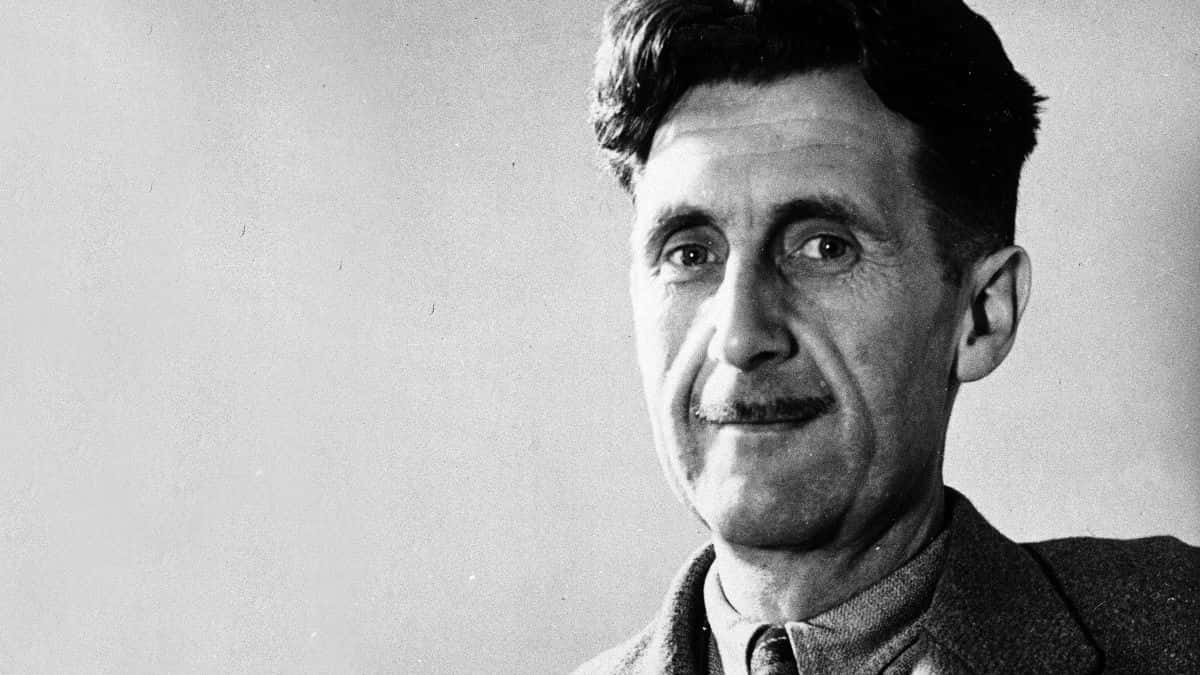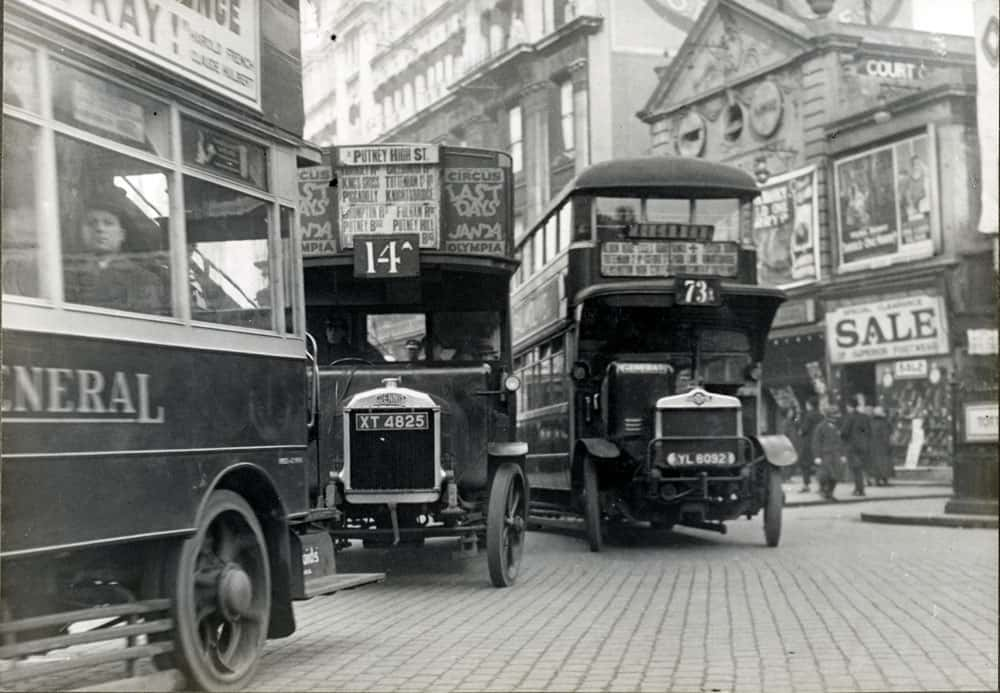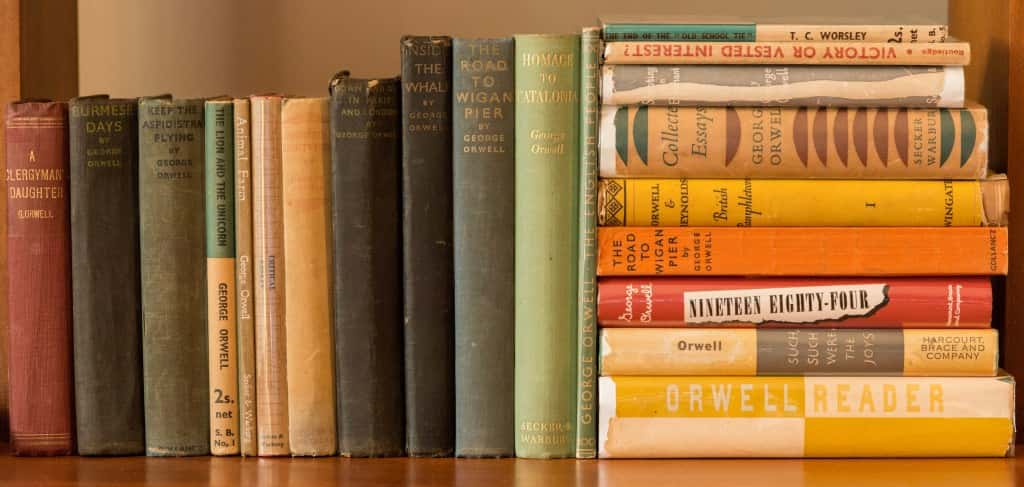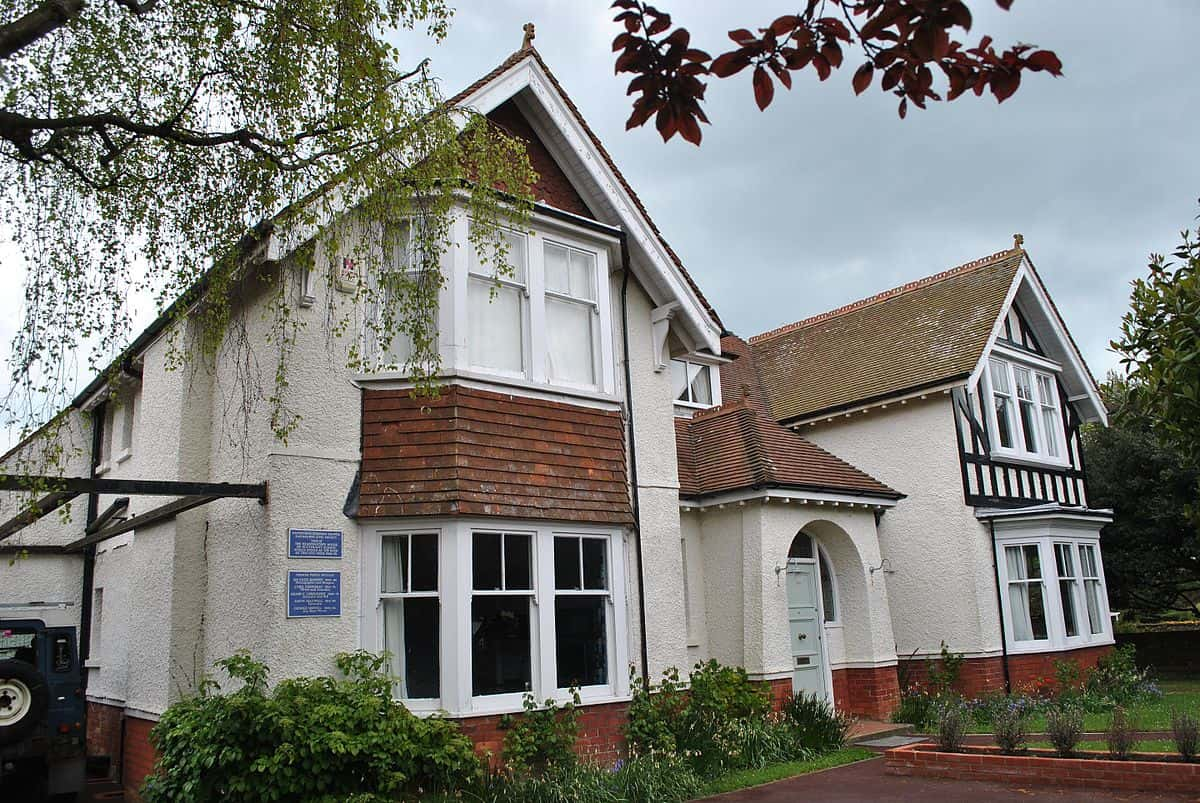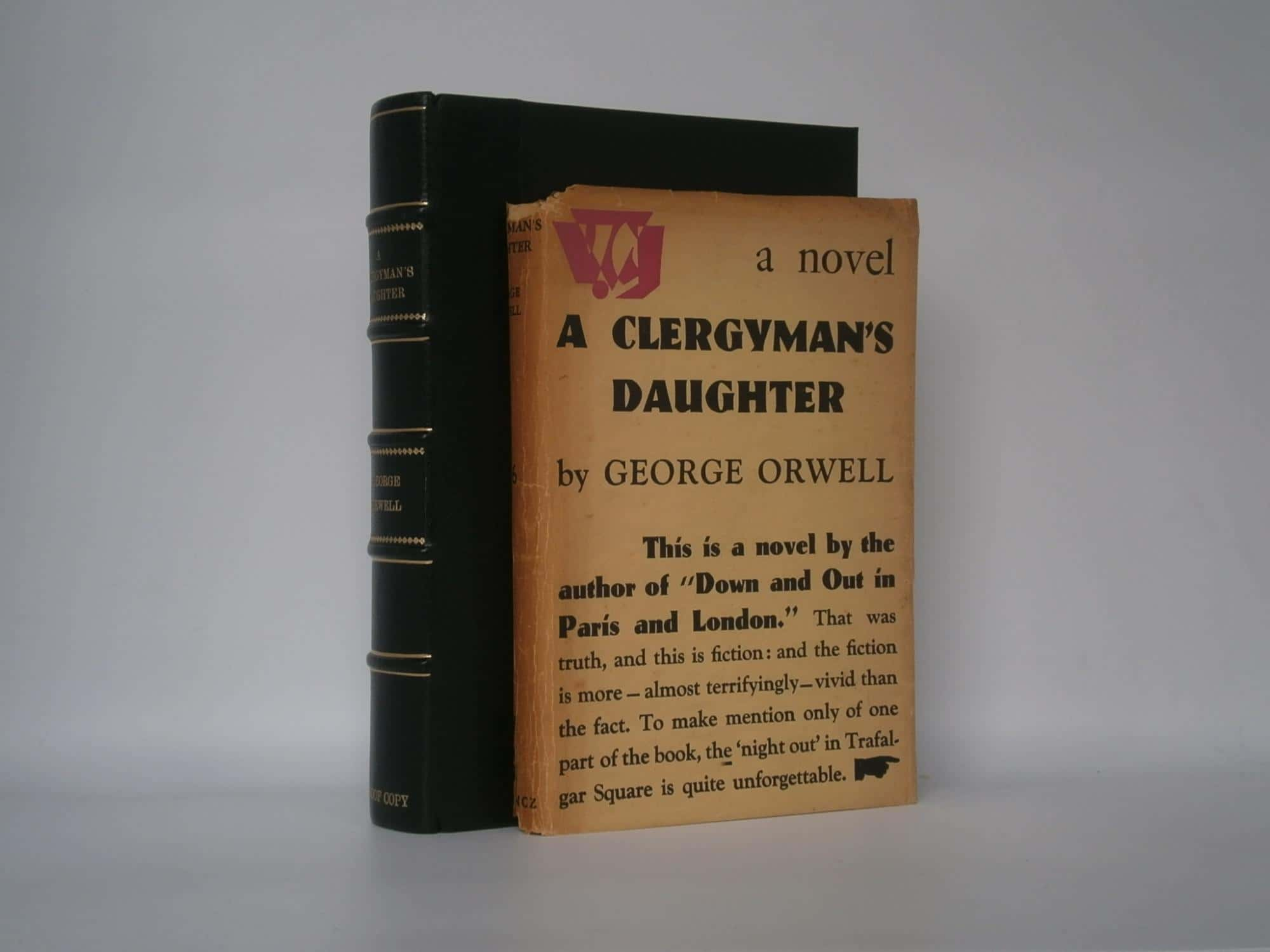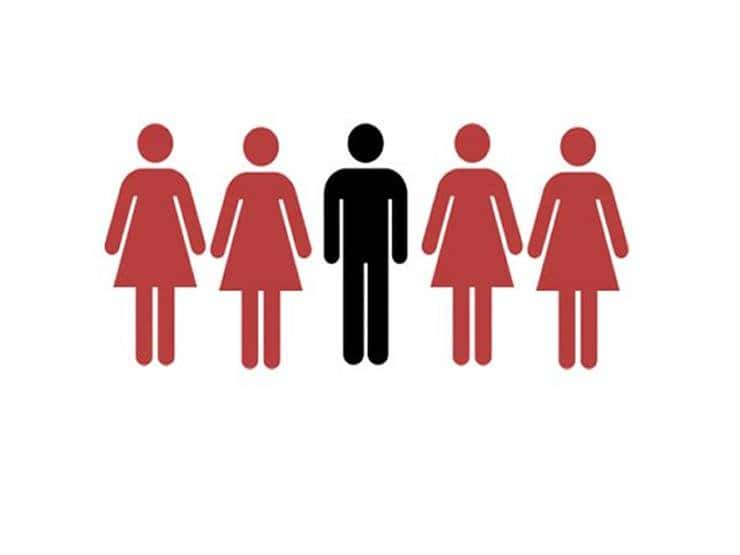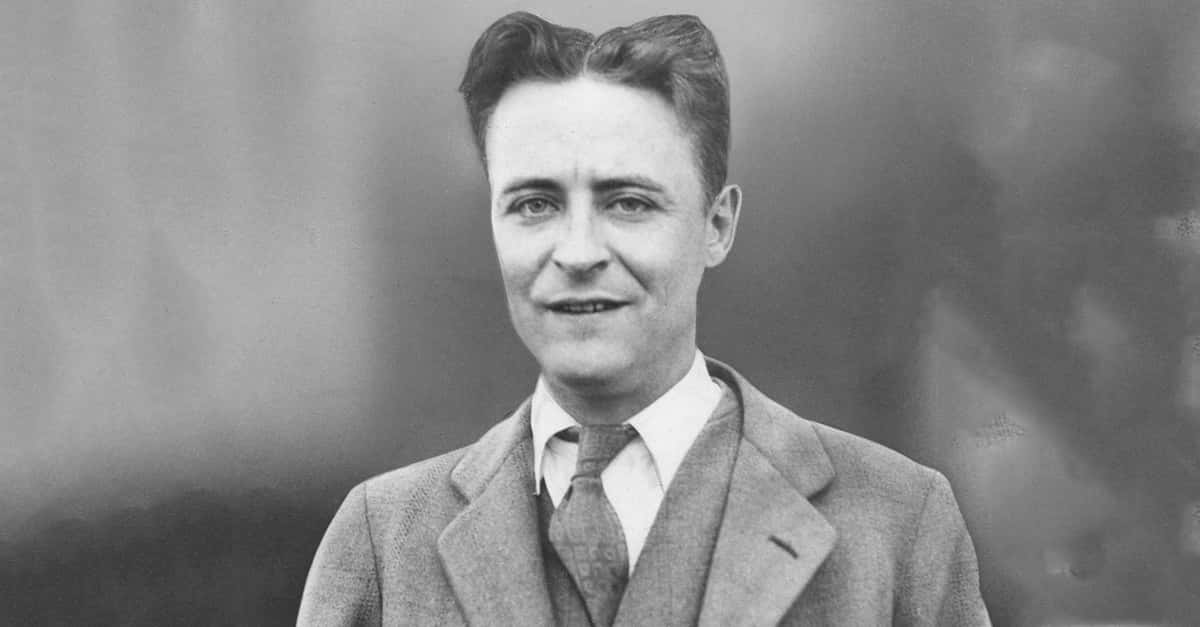“Freedom is the right to tell people what they do not want to hear.”—George Orwell
When it comes to British literature of the 20th century, it’s safe to say that George Orwell is one of the most well-known with the most long-lasting legacy. Orwell’s writing has been essential learning in schools across the world for decades. Most people know about Animal Farm, his novel which is an allegory for Russian history, and 1984, the dystopian novel he wrote in which he predicted worldwide government surveillance and the manipulation of nationalism to love one’s own oppressors. But what else did Orwell write? What inspired him to write these novels? Was he just a writer, or did he balance other careers throughout his life? Find out more about this man below.
George Orwell Facts
43. As Opposed to a Good, Rectangular One?
It turns out that “George Orwell” was his pen name. His real name was Eric Arthur Blair. He chose the name in honor of the River Orwell in Suffolk, while also believing that "George Orwell” was a "good, round English name.” Good thing, too, because "Blairian" doesn't quite have the same ring to it.
42. What About Charles Chaplin? Anyone Using That One?
Other pen names that Orwell considered adopting for his writing career include Kenneth Miles, H. Lewis Allways, and PS Burton. Interestingly, PS Burton was actually a name that Orwell had previously used in his life while living like a tramp.
 Veloce
Veloce
41. It’s Research for a Book
Speaking of living like a tramp, Orwell tried slumming it while he lived in London in 1927. Inspired by the works of American author Jack London, Orwell explored the poor areas of the English capital to better understand the plight of the underclasses. He went full method in this endeavor, dressing like a tramp and abandoning his "lower-upper-middle-class" upbringing or manners while he travelled.
40. Bring Your Son to Work Day Must Have Been… Trippy
Orwell was born in 1903 in India, when India was still part of the British Empire (thereby making him a British citizen). His father, Richard Blair, had a job in the Indian Civil Service, in the Opium Department. You’d be hard pressed to find another government today which has a whole department dedicated to the distribution of opium.
39. Lost Literature
Orwell’s first serious forays into writing novels began when he moved to Paris in 1928 and lived in a working-class neighborhood while being supported by his aunt. Sadly, however, the bulk of his work written in this time has been lost to time.
38. Humble Tombstone
Interestingly, Orwell’s grave makes no mention whatsoever of the name by which most people remember him. He is simply listed by his birth name, his date of birth, and his date of death. It seems rather spartan for the man who invented so many dystopian words for the English language!
37. No Wonder He Only Wrote Six Novels!
The overwhelming majority of Orwell’s writing was in the form of articles, essays, editorials, and reviews. Orwell was actually very well-known for his insights into varied topics such as politics and linguistics. In fact, these perceptions were so influential, even after Orwell’s death, that several collections of these essays have been published and re-released over the years.
36. Thank God it’s Not in Front of Old Bailey
A statue of Orwell was unveiled in November 2017. It stands outside of Broadcasting House, which serves as the headquarters of the BBC. Insert Big Brother reference here.
 YouTube
YouTube
35. Those Who Cannot Do…
While he was trying to make it as a writer, Orwell spent around two years working as a teacher. From 1932 to 1933, he taught at the Hawthorns High School in West London, and then spent a year at Frays College in Middlesex. Ultimately, he would abandon teaching when he moved back in with his parents for financial support.
34. Orwellian
Due to the fact that he spent a great deal of his literary work fighting against totalitarianism and portraying it in a terrifying light, Orwell ended up giving his name to an adjective describing totalitarian and authoritarian systems or practices.
33. Typical Rich Kids…
As a child, Orwell was sent to St. Cyprian’s School in Eastbourne, East Sussex. Attending it on the advice of his uncle and helped into a scholarship to make it more affordable for his parents, Orwell grew to loathe his time at the school. This was partly because he was constantly reminded of his poorer background while he was there. His dislike was such that he would later write an essay about his awful time there (it would be released after his death).
32. Early Successes
Despite his hatred of St. Cyprian’s, this was where Orwell first began to gain attention with his writing. Two poems that he wrote while there were published in the Henley and South Oxfordshire Standard.
31. Moving On
Despite this early success with poetry during his school days, Orwell would mostly abandon the form in his adult years, focusing on prose rather than verse.
30. The Man with the Badge
From 1922 to 1927, Orwell lived in Burma (the country now known as Myanmar). During that time, he served as a police officer with the Indian Imperial Police. This ended after he was permitted to go back to England due to his contracting dengue fever. Recovering from his illness, Orwell figured he’d spent enough of his life as a police officer and turned to a writing career instead.
29. Becoming Woke Before It Was a Thing
Despite gaining a reputation as having a “sense of utter fairness in minutest details,” Orwell would nevertheless feel guilty for his role in upholding the concept of the British Empire. Not only did he become uncomfortable with how masses of people were oppressed by the British abroad, but he also saw that the working classes were oppressed in England itself.
28. Monkey Boy
Aside from being referred to as an especially gifted intellectual, Orwell also made a name for himself in school as a prankster. One rather strange story involved young Orwell scaring a woman out of a train compartment by swinging on the luggage rack in a crude impression of an orangutan. Not sure if that would scare us, but then again, it was a different time back then.
27. For Science?
One of Orwell’s lesser-known interests was in the natural world, including the study of flora and fauna. However, this occasionally manifested itself in strange experiments. One incident involved Orwell shooting a jackdaw with the intention of dissecting it. Another allegedly involved Orwell trying to cook a hedgehog!
 Pinterest
Pinterest
26. That Job Shaped Me
While he’d been a police officer in Burma, Orwell would undergo physical changes which shaped him for the rest of his life. It was there that he developed the habit of wearing a moustache “similar to those worn by officers of the British regiments stationed there.” Orwell also gained tattoos on his knuckles in the form of a blue circle on each knuckle. These tattoos were common at the time, for their alleged ability to “protect against bullets and snake-bites.”
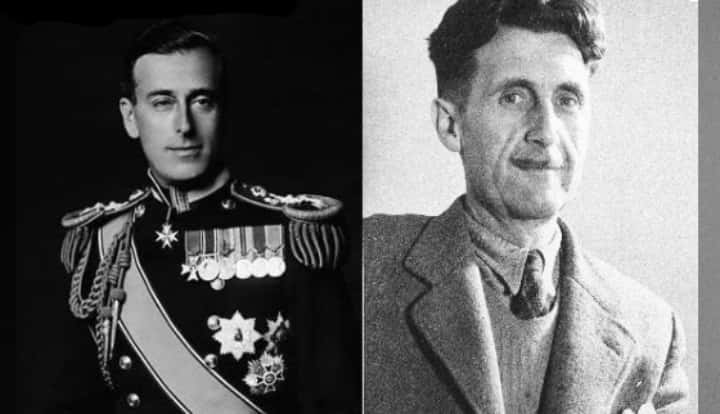 Pinterest
Pinterest
25. Attention Seeking
One interesting anecdote from Orwell’s childhood is when he was discovered in a field doing a hand stand. When he was asked why he was doing that, Orwell allegedly responded, “You are noticed more if you stand on your head than if you a right way up.” We can’t fault him for that logic.
24. Why I Write
Orwell spent the last 14 years of his life writing to push his political opinions onto the public in an effort to persuade people of the dangers which he saw in both his contemporary and future societies. In his 1946 essay "Why I Write," Orwell famously declared that since 1936, each and every “line of serious work that I have written… has been written, directly or indirectly, against totalitarianism and for democratic socialism, as I understand it.”
23. Til Death Do Us Part
Orwell married his first wife, Eileen O’Shaughnessy, in 1936, after they’d only known each other for a year. They remained married until her premature death due to poor health in 1945 at the age of 39.
22. Starting with Light Reading Material
The earliest novel Orwell wrote which is still in print is Burmese Days. It’s a quasi-fictional account of a teak merchant named John (or James, in some publications) Flory. The novel tackles imperialism, racism, and corruption within Burmese society, as well as the divide between those of Burmese background and European background.
21. But I was Just Calling It Like I Saw It!
Burmese Days drew heavily from his life experiences in Burma, but this was so evident that it created publishing issues. Out of fear that someone might be able to sue the publishers for libel, Burmese Days was initially released in the United States first, to see how it did in a more neutral region. Later, it was released in Britain, albeit with several names changed to avoid a lawsuit.
20. Twice for the Money
Orwell’s second novel was A Clergyman’s Daughter, released in 1935. The novel follows a young woman named Dorothy Hare (three guesses what her dad does for a living). Hare’s life is changed completely when she “suffers an attack of amnesia.” Orwell ultimately didn’t care too highly for the book, recommending that it not be reprinted after his death. However, he eventually changed his mind on that issue in the hope that despite his dislike for it, it might provide some extra cash to his estate. That makes it all worth it, right?
19. It’s… Complicated
Orwell’s rather complex relationship with religion is said to have begun at a young age. According to Orwell, he “believed in God” until he was about 14 years old, but even then, he was “well aware that [he] did not love him.”
 Living Hope Baptist Church
Living Hope Baptist Church
18. Might as Well Keep it Complicated
Later in life, Orwell would identify as an atheist, and he would frequently criticize religious systems through his fiction and non-fiction writing. Despite that, however, he would continue to attend Holy Communion, had two Anglican weddings, and planned to be given an Anglican funeral upon his death. When discussing these inconsistencies, he admitted that felt “rather mean,” but he reckoned there was “nothing for it but to keep up with the deception” since he’d been doing it for years already.
17. Based on a True Story? You Don’t Say!
Orwell’s third book, Keep the Aspidistra Flying, was a novel which, in true Orwell fashion, drew from his real-life experiences. In the case of this book, it drew from his time living on the poverty line in London. It follows a protagonist who renounces his society’s worship of money and abandons a high-paying job to write poetry while supporting himself with low-paying work. Subtle, Mr. Orwell, very subtle.
 Coursework Help gnomes-inc.info
Coursework Help gnomes-inc.info
16. Our Child
Although Orwell and Eileen never had biological children of their own, they did adopt an infant in 1944. They named him Richard Horatio, and they looked after him until their deaths. Richard would then be raised by Orwell’s sister and her husband. For his part, Richard maintained that Orwell had been a “wonderful father” before his early passing.
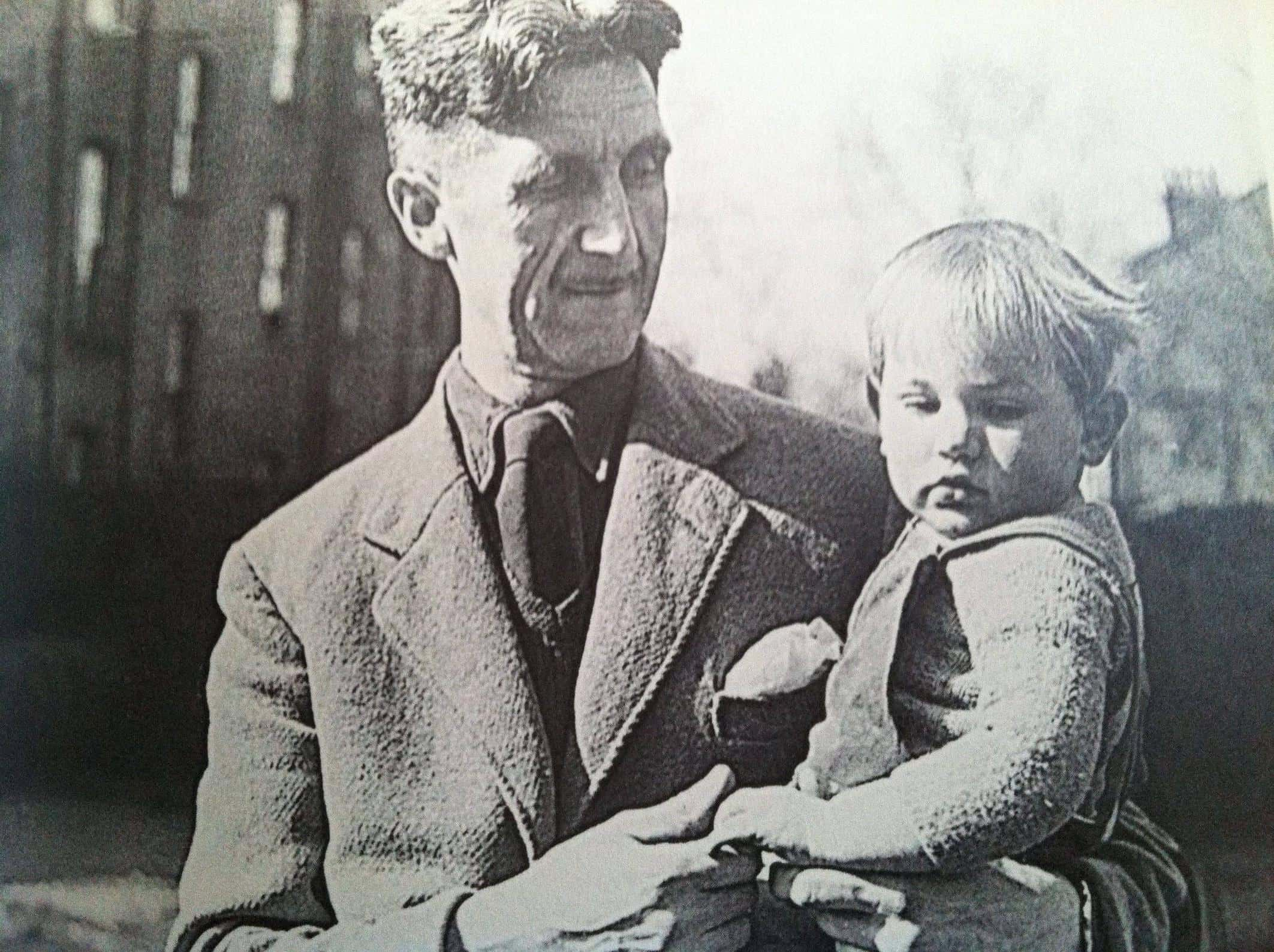 Writing As I Please - WordPress
Writing As I Please - WordPress
15. Never Leave Politics Out of It!
During the Second World War, Orwell was declared unfit for military service, perhaps due to injuries he’d sustained in the Spanish Civil War (more on that later). Instead, Orwell joined the Home Guard in the hope that the organization would serve as a “revolutionary People’s Militia.”
 Orwell Past and Present
Orwell Past and Present
14. Pessimism Writ Well
Orwell’s fourth novel (and the last one to be released before the Second World War) was Coming Up for Air. The book follows a man named George Bowling, while the themes combined the upcoming war with rural England being suffocated by commercialism and capitalism. As you can tell, it was a cheerful read! That might explain why it initially just sold 3,000 copies when it was first released.
13. Did That Make Things Awkward?
Some believe that the protagonist of Coming Up for Air was based on Orwell’s brother-in-law, Humphrey Dakin. Dakin himself was convinced of this, as both men had similar physical appearances, and Dakin had known Orwell for a long time, and Orwell’s tendency to steal from real life to fill his fiction was hardly a secret by then.
12. Disillusioned Idealist
In the 1930s, a civil war erupted in Spain between the left-leaning government and rebel forces of extreme right-wing groups who were funded by Nazi Germany and Fascist Italy. For the government’s part, they were supported by the Soviet Union and thousands of left-leaning recruits from nations who were officially remaining neutral in the conflict. Orwell was one of those volunteers, reportedly declaring that he’d “come to fight against Fascism.” However, under the Soviet Union’s management, Orwell was horrified at the clumsy manner in which the Republicans were fighting the war and were often hampered by the Soviets’ obstinate manner of doing things. Orwell’s controversial criticism of his own side would later receive a wide variety of responses, and it would further lead to his criticism of totalitarianism in his later books.
11. Life Inspiring Art
It’s hardly a secret that Orwell looked to Soviet Russia in his criticisms of totalitarianism, and the betrayal of a glorious revolution. Orwell would criticize the Russian Revolution in his allegorical novel Animal Farm and reference the aftermath of said revolution in 1984. Examples include the similarities between Big Brother and Joseph Stalin, as well as the vilification of Emmanuel Goldstein in the book as an allusion to former revolutionary Leon Trotsky in Stalin’s Soviet Union.
10. Partners in Crime
While Orwell was at St. Cyprian’s, he met fellow student Cyril Connolly. Both of them were talented writers even then. Orwell actually came second to Connolly while competing for the Harrow History Prize. Connolly would later go on to become a writer in his own right and would publish several essays written by Orwell while he worked as an editor the Horizon literary magazine.
9. Life Writing
During the 1930s, Orwell wrote three non-fiction novels, all of them containing autobiographical reflections and accounts. The first, Down and Out in Paris and London, was a 1933 memoir which he wrote detailing the lives of the poor who lived in both those cities. The Road to Wigan Pier, published in 1937, compared the plights of the working class in England to his own middle-class upbringing. A year later, he published Homage to Catalonia, which served as a memoir of his experiences during the Spanish Civil War.
8. RIP George
In 1947, Orwell was diagnosed with tuberculosis, and from then on, his health would steadily decline. Things became so serious that his wedding to Sonia Brownell took place in his hospital room. On the 21st of January 1950, Orwell died when an artery in his lungs burst.
7. He Wanted to Be a Casanova
According to one of his confidantes, Mabel Fierz, Orwell was quite the womanizer. He allegedly had relationships with many different girls in different parts of England at the same time (we have no idea if they knew or if they were just really cool with the situation).
6. But Did He Feel Like Casanova?
Despite his apparent success at maintaining relationships, Orwell was allegedly wracked with uncertainty about his attraction to women. Fierz once reflected that Orwell “used to say the one thing he wished in this world was that he’d been attractive to women.” It seems that his obsession, like so many, was drawn from his insecurity and lack of self-confidence. It’s a paradoxical thing, isn’t it?
5. Going Out on a High Note
Most people nowadays know Orwell’s name for Animal Farm and/or 1984, which are widely read in classrooms across the Western world. Evidently, he got better with age, because of the known six books that he wrote, these were his final two. In fact, 1984 was published in 1949, barely a year before he died.
4. Mea Culpa
Orwell would admit that he had been unfaithful to his first wife, Eileen, but he was quick to point out that she too, had had affairs of her own when they were married. As he saw it, they’d both treated each other badly at times, but that was part of what a “real marriage” entailed. Outside sources, for their part, maintained that Eileen and Orwell’s marriage had been an overall happy one. To each their own I guess.
3. Time Is Fleeting
Following the death of his first wife, Orwell fell into a state of depression, partly because he was now a single father raising a child who had lost his mother, as well as missing companionship in his life. This led him to propose marriage to four different women in his later life before one of them, Sonia Brownell, accepted his offer. Brownell married Orwell on the 13th of October 1949, just three months before Orwell’s own death.
2. You're Lucky It Wasn't a Horse's Head!
Another story from Orwell's prankster days at school had more serious repercussions for Orwell than his earlier stunts. He was reportedly expelled from the cram school at Southwold “for sending a dead rat as a birthday present to the town surveyor.” Some people just can’t handle a joke, we guess.
 pinterest
pinterest
1. The Fascists Nearly Got Me
Orwell’s career as a writer very nearly came to a premature end while he was fighting on the front lines in the Spanish Civil War. Partly due to his considerable height of six feet two inches, Orwell was shot in the throat by a sniper in 1936. Incredibly, the bullet had just barely avoided hitting his main artery. With that bit of good fortune in the middle of such a near-death experience Orwell was able to recover, and he would eventually be able to write Animal Farm and 1984 after all, to both the chagrin and delight of high school students everywhere!


